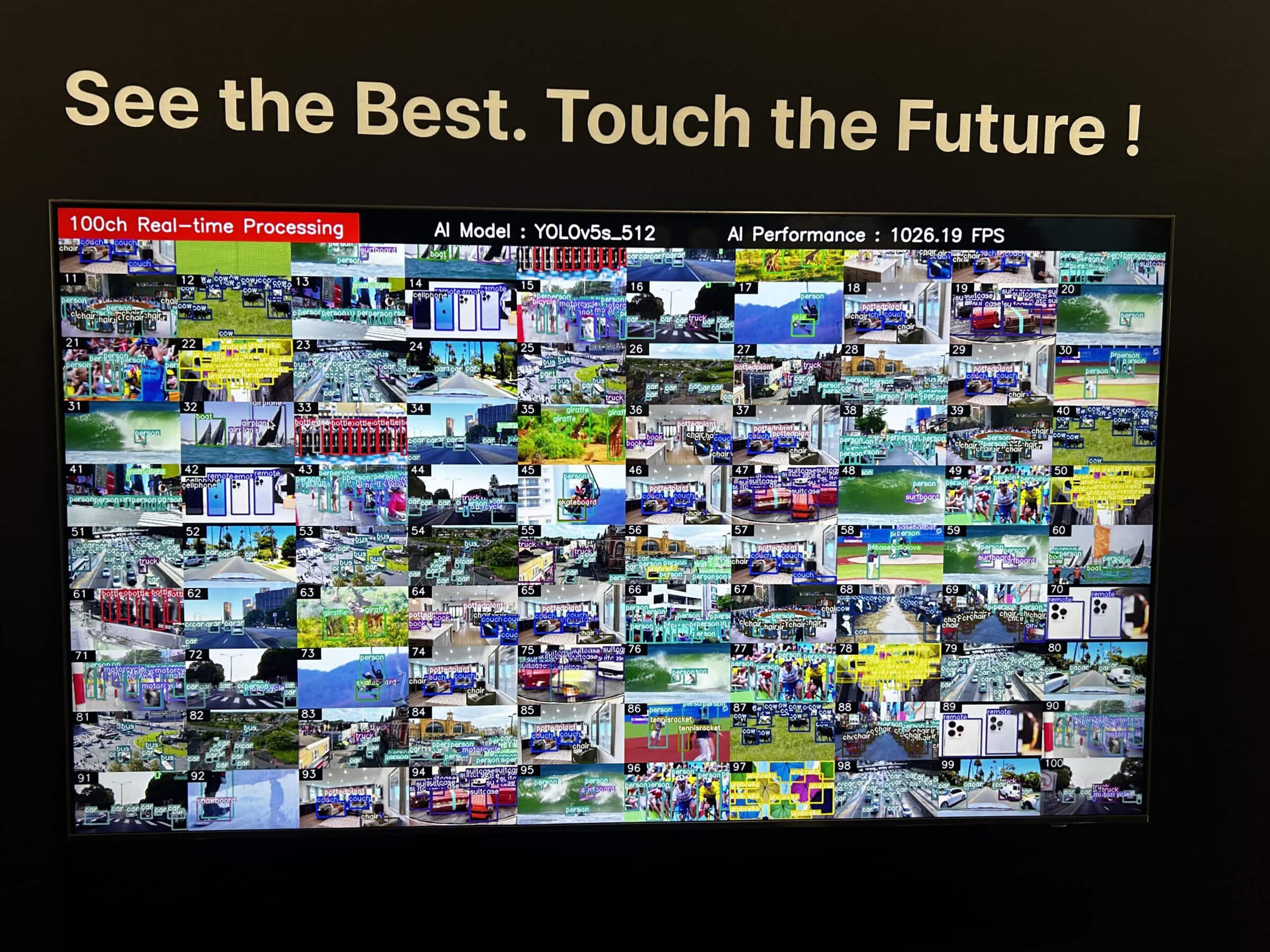Topic
- Strategy
By Matt Stiker
“Unprecedented” is the word I keep hearing about the coronavirus crisis, and the impact it’s already had on our personal and professional lives in such a brief period of time.
In times like these, we all have people, places, or things we turn to that help us get through the challenges and see the opportunities when we’re immersed in the details, and that can guide us to the light when darkness seems all-encompassing.
Okay, maybe that last part is a tad over-dramatic. But the point remains the same—who’s your go-to? If you’re a brand marketer facing unprecedented times in your business, who will be the person you call that you rely on, depend on, that you need to help you get done what needs to get done right now. Who helps ensure that you can focus elsewhere? In the words of Ray Parker, Jr., who you gonna call?
One suggestion: It’s the account manager at your ad agency. However you refer to them—account folks, brand leaders, client service people, suits—they have what may be the most misunderstood and yet most important role in agencies today.
Challenged to drive business relationships forward and achieve increasingly challenging goals, to grasp the client’s business so the agency can be a strategic advisor to its client, to maintain a healthy and productive tension between the needs of both creatives and clients, to ensure that the logistics of all account trains are running on time, to be conversant and current in all agency functions and departments, to shore up client-side staff deficiencies, to protect financial attrition and grow revenue organically, to create an environment where brilliant ideas can be developed…I could go on but you get the point.
It’s a wide load, but perhaps because they operate more as generalists than specialists, the role itself is under threat. With the business shifting away from AOR to project and from traditional to digital, and with agency margins far thinner than ever, the role of project management has been elevated—at times, and in certain places, to the detriment of account management.
Which is a mistake, and the beginning of a vicious cycle. When CMOs, only a small percentage of whose time is typically dedicated to work the agency handles, no longer have their strategic go-to they can speak with every morning, guess what? The agency is less relevant. And as the agency becomes less relevant, its services become more commoditized. And when that happens, clients can go pretty much anywhere—including in-house—to get the work done.
So, in the spirit of David Morrissey’s “What It Means to be a Strategist in 2020” about brand planners from last month (aw, who am I kidding, It’s a direct rip-off), I invited some of the best account people I could find to share their thoughts on how their role has evolved, how client and agency expectations have shifted, and what the outlook for our profession is.
To do that, I asked them all one simple question: What does it mean to be an account leader in 2020? These were the themes that surfaced.
It’s the creativity, stupid.
While thankfully there seems to be some common cultural coalescence that’s occurred over the last several years that creative is no longer the sole remit of the department that bears its name, the fact is that many of the best account people have embraced this with the same fervency as the best creatives.
Never content to be the “bag carriers” (a side benefit of the shift to digital—no more bags!), many agencies are starting to recognize that the best ideas emanate not from a magic room where two people huddle for two weeks to a “taa-daah!” reveal, but from a space where collaboration and insights live side-by-side with creativity and sparks.
Lindsay Grant
Managing Director
BSSP, Sausalito, Calif.
I think the bar is higher than ever. As a discipline that has, fairly recently, been challenged by some…in an industry that is also being challenged, the best account people have to be indispensable, and they have to be influencers of growth and creativity.
The most successful account people think of themselves as creative (and hold themselves accountable to shape the work). I hate hearing young people say, “I’m just the account person.” Bring ideas to a meeting…share a personal insight that makes the work better…bring your expertise and passions to the table—as a marketer and a consumer (e.g., maybe you’re a heavy user of an emerging platform that the rest of the team doesn’t know much about yet).
Our world is changing so fast—ideas have to come from everywhere.
Trent Walters
Brand Management/Principal
The Richards Group, Dallas
That means staying connected: putting ourselves in the shoes of everyone that we interact with in order to cultivate the best relationships. It means understanding the budgetary, time, and political pressures of our clients and providing creative partnership to help them solve problems—often using technology and data not available until now.
It means developing an atmosphere (which many times now has to happen via Skype, Google Hangout, Zoom, or some other remote conferencing method) where our agency colleagues are inspired to do their best work. It means being sensitive to the diverse strengths, weaknesses, opportunities, and needs of your account team and drawing out the very best from each of them every single day.
And it means having the courage to push forward new, unproven, and sometimes flat-out scary ideas that make your agency better—whether they come in the form of a piece of communication, a new agency policy, or even a prospective new hire.
Anthony DelVecchio
Management Supervisor
Marcus Thomas LLC, Cleveland
In today’s increasingly fragmented, data- and results-driven business environment, clients are looking for innovative thinking across all marketing platforms, channels, and operations—whether they’re asking or not. Agency creativity can come from anyone, not just the traditional creative team. So be open to it.
Or better yet, seek it out. Ask interesting, yet challenging questions of all your subject matter experts, and listen hard to their ideas. A proactive thought the client didn’t ask for directly might be the best reason for the next meeting.
Jeff Graham
President + CMO
Cactus, Boulder, Colo.
The superpower of agency folks (relative to our client-side counterparts) was, is, and always will be breakthrough creativity. It’s what clients desperately need from us to drive business growth and brand health. And it’s something their own teams aren’t always capable of delivering.
So as modern account leaders, we can start by bringing more creativity to how we do our jobs, and then insisting on it from every corner in the agency. Gone are the days when “creative” was a noun, an artifact of the creative department alone. Today, “creative” has to be a verb.
Apologies to the English majors now cringing—”Nooooo! It’s an adjective, you idiot!”—but my point is creative has to be an active way of working across the entire agency, and it has to come from everywhere. Account leaders are uniquely positioned to marshal integrated agency teams to bring those ideas, and to create the conditions on their accounts where big, bold creative ideas can live.
Thomas Harvey
Group Brand Director
Wieden + Kennedy, Portland, Ore.
I’m glad many agencies are changing the name of what we do from account management to brand management. Account management suggests a focus on the relationship between the agency and the client, whereas brand management puts the focus on the relationship between the brand and their consumer. That’s why clients hire us.
Our no. 1 job should be making great work that results in the consumer having an irrational preference for our client’s brand. If we do this on a consistent basis, the agency client relationship takes care of itself. That’s account management—I mean brand management—in 2020.
Technology, Technology, Technology…Technology (sung to the tune of “Liberty, Liberty, Liberty…Liberty” – you may not like it, but you do know it)
From the largest companies whose CMOs are increasingly pulled into meetings with CTOs and who are making decisions daily about the millions they’re spending on their martech stack to the smallest clients who are wrestling with how best to acquire any type of data to help their business get off the ground, it’s pretty clear that the future of marketing is rooted in technology.
But just as Peter Parker struggled to understand the concept “With great power comes great responsibility,” client-side marketers need guidance as to how best to utilize and deploy the technology to achieve the best goals. We’ve seen where technology for the sake of it can take us (see: sales of Apple Watch); it’s incumbent on account people not only to understand but to contribute a point of view on the topic.
Ashley Butturini
EVP/Director of Client Services
Tombras, Knoxville, Tenn.
More and more, brands are looking to agencies, and often account leaders, to demystify things like marketing personalization, DMPs, first-party data use, CCPA/GDPR, attribution modeling—the list goes on.
As an account leader in 2020, you’ve got to thoroughly understand these topics and how they affect what you’re doing. The “fake it ’til ya make it” mindset can only take you so far in this business, and today’s CMOs see right through it. You better be reading, learning, asking experts dumb questions until you can have intelligent conversations with your clients about these things. Otherwise, they’ll probably be knocking on the door of a consultancy.
Angela Johnson
Client Development Officer
Dentsu Aegis, New York City
Technology will now drive the rote parts of the traditional account manager’s job to automation. Agencies are embracing CRM systems that can track client contact and account planning technologies to keep the client leader informed of all the moving parts of complex businesses. Benefits of these technologies include protecting client information if staff move on and allowing senior regional or global agency personnel a bird’s-eye view into the whole account. The focus on client partnership and growth leadership has never been more important.
Soft skills—e.g., emotional intelligence—matter more than ever in relationship-leading.
Check any list of the Top 10 Skills in Business for the coming decade, and emotional intelligence will rank way up there. Functional and repetitive tasks are moving to AI, and one of the key things that safeguards our fate against being replaced by computers is our ability to empathize. Success in relationships comes in true listening and hearing, providing a responsive and resonant sounding board, encouraging, seeing, “showing up,” and providing a space for a client to share fears, anxieties, hopes, and dreams.
Frank DiBiasi
Founder
DiBiasi Consulting, Washington
The call, email, or text a client makes with a question, an issue, a need: with that call comes responsibility and empathy. To understand the business, the business goals, and the client’s personal goals. Then there’s the need to understand the multiple channels and how they work, and the humility to know when you don’t know the answer, to then seek it out. All while representing the agency and supporting the team on the business. It’s a big call to take.
Eric Lombardi
Head of Client Services
Eleven, San Francisco
Four years ago, Eleven closed its traditional Account Service department, opting instead to employ a handful of 15- to 25-year agency and client-side business veterans to look after its accounts through a different lens. Eleven’s approach to account leadership is to challenge its business directors to get out of the process of everyday making and into the world of C-level client relationships, agenda-setting, broader client/partner/agency ecosystem stewardship, business strategy, and knowing what levers to pull (and when) to create positive outcomes.
Teri Miller
President
72andSunny, Los Angeles
Leading from the front is more important now than ever. No matter your seniority, there are no figureheads. Don’t get removed from the work or the humans on the other side. Personally understand your client’s business challenges and ambitions better than anyone. Personally understand your own team’s strengths and fears because you keep your 1:1s, and then support what they can handle.
Regardless of the industry moving to project-based work and competition coming in all shapes, the people on the front lines will always find a way back to each other if there is shared trust. Get on the airplane. Get on the text thread. Get them a beer and actually listen. Know their kids’ names. Check in even when you don’t need anything, so it matters when you do. Say thank you. It’s not complicated, it’s just hard.
Brett Banker
Group Business Lead and Head of Account Management
Anomaly, New York City
Our job is to provide unwavering leadership and direction, as in the end, we are held accountable by client and company. If it’s not working, we must understand why, take ownership for the state of being, and drive course correction.
Also, with brand and media landscapes radically evolving, our value is more inherently needed upstream as business strategists and partners, as the default answer is no longer just “communication.”
The more things change, the more we’re expected to know.
There’s nothing static about working in an agency, and certainly nothing static about the role of the account leader. Keeping up as a client’s business is upended, watching for the shifts and signs that inevitably take place before disruption, and being able to interpret (and implement) for both agency and often the client itself are critical skills for account leaders in the next 10+ years.
Naturally curious and “get-it-done” types, the account leaders I spoke with have fully embraced the evolution in their roles, and it’s actually served to re-commit them to the energy and enthusiasm they feel for their chosen path. They want to help their clients’ businesses grow, they want to help the agency do its best work imaginable. You can practically hear a collective “Bring it on” from them all.
Brian Donovan
SVP/Group Account Director
Allen & Gerritsen, Boston
I think of solid business/account leads as “dot connectors”—we’re seeing all the dots and working to connect the right ones to help our clients form a beautiful picture. With today’s technology and business pressures, more and more dots seem to be added to the sheet more and more rapidly.
This makes it increasingly important for business/account leads to foster teamwork, communication, and collaboration with others. And a strong business/account lead is critical to keeping the team moving forward. They understand that new, unplanned “dots” are to pop up on the page and that we need to navigate these new realities. A good business/account lead is resilient, steady, motivating, and trusted—always focused on progress.
Elaine Naum
SVP/Managing Director, Integrated Agency
Partners + Napier, Rochester, N.Y.
Clients expect more from agencies, so there’s more pressure on account leaders than ever before: Understand my needs. Expand my thinking. Help me grow my business. Make me look good. For today’s account leader, the bar is higher and requires more proactivity.
Donnalyn Smith
President North America
Momentum, New York City
Most if not all of the foundational pillars of being a great business leader still hold true for 2020.…We remain maniacally focused on our clients’ business, masterful at seamless integration, relentlessly focused on growth, and skilled at relationship building always with integrity and empathy. What continues to evolve however is the need for our business leader community to be in constant pursuit of learning something new every day. Business leaders today must be multidisciplined. They must be able to understand new digital platforms, emerging media, data driven strategies, etc. The only constant in our business today is change.
Lisa Graves
SVP/Account Management
MMGY, Cincinnati
As 2020 has unfolded, our account leaders have had to pivot daily. Several key approaches rise to the top of our internal and client conversations:
-
- Prioritize and reprioritize—weekly, daily, hour-to-hour.
- Communication daily around-the-world impact to client business.
- Flexible and nimble partnership.
- Understanding and transparency of obligations.
- Plan for recovery and rebound.
- Be ready to hit it hard.
Jessie Gilligan
Director of Account Management
Garrand Moehlenkamp, Portland, Maine
We are shapeshifters and multiple-hats-at-a-time wearers. We’re budget setters, timeline trackers, and new opportunity presenters. Phone call takers, calm down sayers, client negotiators. We’re impromptu planners, brief writers and rewriters, teachers, tellers, doers and thinkers. We’re curious dreamers with a knack for organized chaos. We take every day in stride, because that’s the world we’ve chosen to thrive in.”
To sum up? Going back to the beginning, where I said the role may be the most misunderstood and yet most important role in agencies…great account leaders remain a client’s most important go-to call every day, an agency’s best offense in growing business with existing clients, an agency’s best defense in preventing client attrition, and they help mitigate against business going in-house. Not sure what’s left to misunderstand.
Matt Stiker is former President of Portland Maine ad agency Garrand Moehlenkamp, member of the 4As Business Leadership Committee and a passionate believer in the critical role account leaders play in the agency of tomorrow. He’s currently sheltering in place in San Francisco with his family, consulting for a variety of former clients and colleagues with Capital M Marketing. Contact him by email or on LinkedIn.




